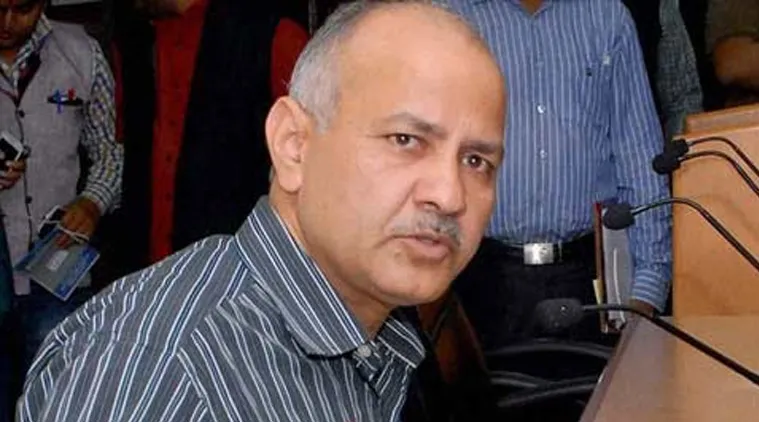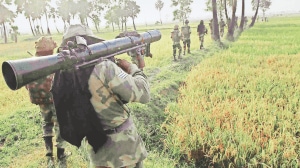Stay updated with the latest - Click here to follow us on Instagram
Janta Ka Budget: AAP begins experiment in direct democracy
Rs 50 lakh was allotted for each mohalla, with citizen’s priorities being the framework on which the budget would be built.
 Deputy CM and Education Minister Manish Sisodia
Deputy CM and Education Minister Manish Sisodia
The Aam Aadmi Party on Sunday began its unique experiment of holding mohalla sabhas to decide the content of the state budget, with three such meetings held in Deputy Chief Minister Manish Sisodia’s Patparganj constituency. The AAP had earlier earmarked, on a pilot basis, 11 constituencies for people’s participation in the budget. Rs 50 lakh was allotted for each mohalla, with citizen’s priorities being the framework on which the budget would be built.
WATCH VIDEO
On Sunday, the three mohalla sabhas for “Janta ka Budget” were held in West Vinod Nagar, then in Sanjay Lake and ending in Mayur Vihar Phase II. Making his presence felt at the first such meeting, Chief Minister Arvind Kejriwal said, “This is our first step towards Swaraj. These mohalla sabhas will be like a parliament, and in this parliament common people will take decisions on how to use their funds. And if it works out, then the project will be implemented in all the constituencies here,” Kejriwal said.
“There will be 400 mohalla sabhas in the city. Politicians have so far misused public money. This your money and you’ll decide where to spend (it)…We will set Delhi as an example for true democracy in our country.”
Children in the mohalla sabha complain to sisodia that teachers dont come to school, asks DC to go on an inspection tomorrow @IndianExpress
— Dipankar Ghose (@dipankarghose31) April 19, 2015
Sisodia asks for a vote on how many want work on functioning sewer @IndianExpress pic.twitter.com/0trzOwENrF
— Dipankar Ghose (@dipankarghose31) April 19, 2015
Sisodia asks people to vote for what projects to work on, asks them to choose wisely @IndianExpress
— Dipankar Ghose (@dipankarghose31) April 19, 2015
As sisodia reads out what people have written on paper, people will now vote by raising their hands @IndianExpress pic.twitter.com/carllkw0uT
— Dipankar Ghose (@dipankarghose31) April 19, 2015
As the MLA for the constituency, Sisodia condcuted each meeting. “A total of 35 such meetings will be held in the Patparganj constituency on Saturdays and Sundays. This is just a beginning.”
Each public meeting saw largely the same format being followed. To an audience of people who were residents of the mohalla concerned, instructions were given out asking for “one thing they thought needed priority expenditure in their area”. The priorities were listed on pieces of paper distributed by party and civil defence volunteers. Once these were compiled, Sisodia would read out a list of demands that had been made by the people, and put it to a vote by raising of hands. Repeatedly, the people were asked, not to vote for everything, but to prioritise on what their constituency needed most, since funds were limited. “The more the number of hands raises on a particular issue, the more priority it will be given,” Kejriwal said at the first meeting.
Officials of various government departments like PWD, DJB, and Education sat in chairs behind Sisodia to jump up and either explain concerns or promise to implement a policy. Sisodia called each issue out aloud and asked residents to raise their hands, if it needed to be put on the priority list. Often in that process, many residents spoke of problems with officials in the area, and each time, Sisodia, spoke of action against the allegedly errant officer. The crowd cheered him on. In one instance, residents complained of a road that lay incomplete, in another children complained of teachers not attending school. And in a third, a DUSIB officer seemed to have failed to arrive at the sabha.
At the first gathering, the top issues there that received a majority of resident votes were the construction of a public library, dispensaries and renovation of roads. In the second at the DDA Park in Sanjay Lake, the priority issues were sewer and water lines. At the third, issues that got sanctioned by the people included installation of CCTV cameras, removal of dogs and monkeys from the area.
Story continues below this ad
At each sabha, there were MLA’s from other constituencies as well, watching the proceedings. “Something like this has never been done before. You have to do this too, so watch how things are being done,” Sisodia told MLAs.
Taru Bhatia is an Exims student.







